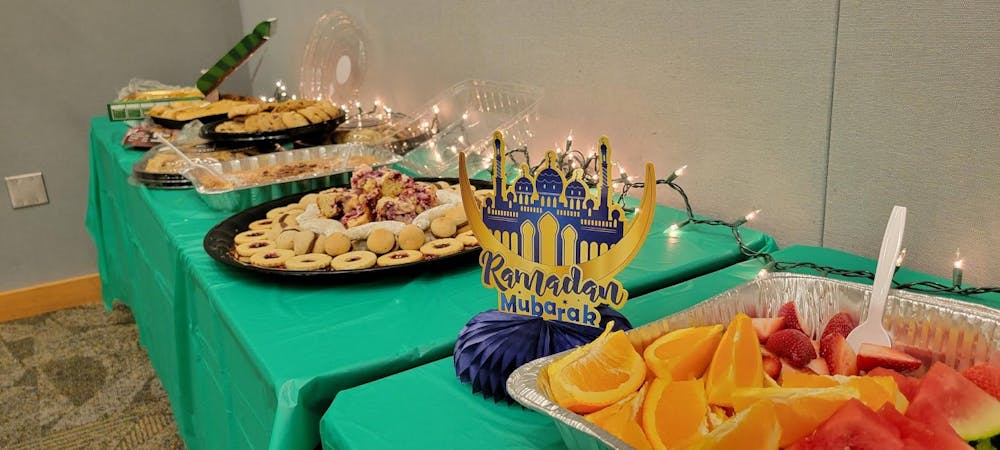Ramadan Mubarak means “Blessed Ramadan.” It’s a month of daily fasting for Muslims all around the world, including many at Miami University. Ramadan follows the lunar calendar, so it shifts 10 days earlier each year. This year, Ramadan started on March 11 and ends April 10.
What is Ramadan?
Hafsa El Harchi, the regionals Muslim Student Association President, said many families are excited to fast for Ramadan.
“I think it's a beautiful thing that almost all Muslims enjoy,” El Harchi said.
Fasting or Sawm, is about more than not eating or drinking from daybreak to sunset. It’s a festive month full of family gatherings and breaking fast with food at sunset for Iftar.
“If we did [sic] not fast, we will not understand the struggle of some Muslims who actually aren't able to eat, for example, those in Syria [and] Palestine,” Ahmed Elfeel said, a Muslim student at Miami, expressing common beliefs.
Fasting is one of the five foundational pillars of Islam, and thus required of all Muslims – though it holds many exceptions for age, illness, travel and more.
“It may be hard, but Allah says in the Quran with hardship comes ease,” Elfeel said.
Every night for 30 days, prayers bring shared peace and spiritual fulfillment to Muslims. The Eid al-Fitr celebration marks the end of the month of fasting through feasting, family visits, food, sweets and plenty of gift giving.
There is a special night of Ramadan called Laylat al-Qadr (Night of Decree), where one night of prayer is greater in reward than 1,000 months worth of prayers. Many Muslims stay up the full night in prayer to capture this great spiritual reward.
“It is believed that any [prayer] you make on that night will change your destiny permanently,” Elfeel said.
Challenges at Miami
Enjoy what you're reading?
Signup for our newsletter
While Miami has accommodated Muslims with takeout boxes, the time constraint of the dining halls closing when fast breaks can dull the joy of Iftar.
“The food trays they give us are very beautiful, it's just sometimes when they tell us you can only have one food tray, it kinda upsets me a little bit, [considering] financial struggle and tuition prices,” Elfeel said. “It's not just Iftar we have to worry about, it's also Suhoor.”
Some Muslims on campus, such as Shakhzodkhon Mukaddaskhonov, find the flimsy, unsealed trays troublesome and difficult to stash food for Suhoor in, or the meal before daybreak at 6 a.m. He said that the divider trays are an improvement from last year.For Muslims, Ramadan is a time for personal and spiritual growth. Miami students dedicating time for religious needs must also navigate finding time to study. Studying does add strain to fasting Muslims.
It's a balance of life and afterlife. In recent years, Ramadan slowly drifted back through June, May and April, falling over finals and now midterms. Juggling prayer, fasting, sleep and scoring well on exams is difficult. Many are forced to choose between the peace of prayer – or a piece of paper.
hamdana2@miamioh.edu




